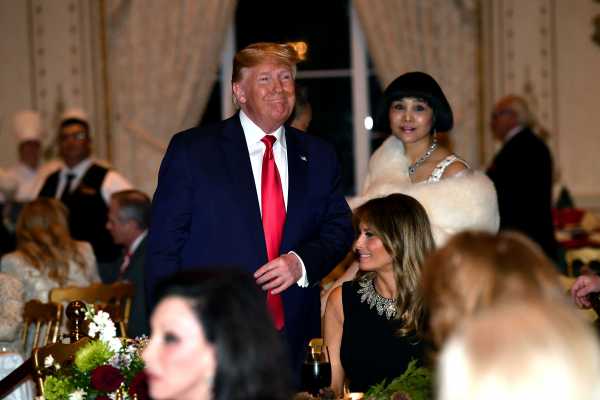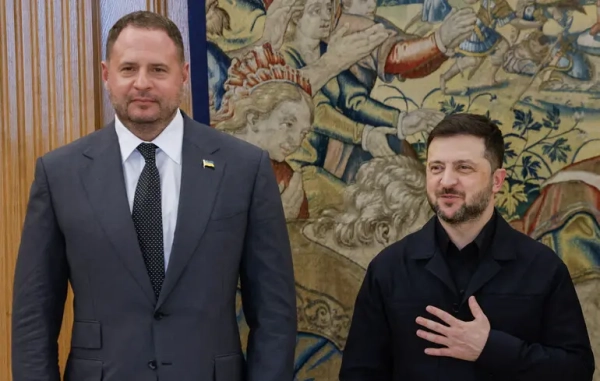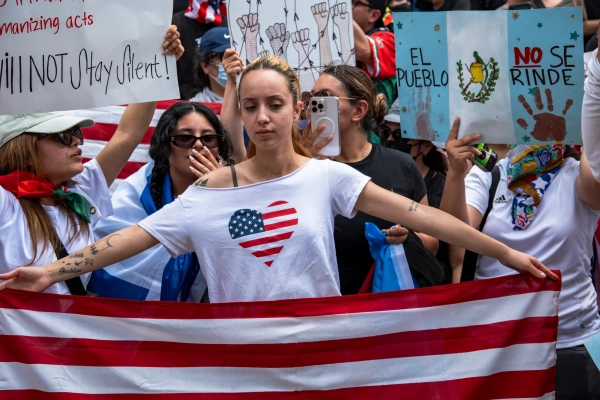
In December 2015, Donald Trump infamously appeared on conspiracy theorist Alex Jones’s Infowars show, praised his “amazing” reputation, and vowed that “I will never let you down.” His Twitter behavior indicates that’s one promise he’s doing his best to keep.
Trump’s December demonstrated that instead of becoming more “restrained” on social media — something he promised to do just before his inauguration — he’s turning it up to 11. He broke personal records with the numbers of tweets he posted. And tweets he shared over the holidays indicate he’s feeling more shameless than ever about retweeting sketchy accounts that have promoted conspiracy theories portraying his political enemies as satanist pedophiles.
In fact, Trump amplified so many accounts of this sort that by the time New Year’s Day rolled around, his amplification of an account that had promoted QAnon and Pizzagate didn’t register as a blip on the news radar. But it’s worth remembering that it’s not normal for the president and his social media team to be unwilling or unable (or both) to do basic vetting of the accounts he’s choosing to share with his 68 million followers.
A case study: Trump’s retweet of “DebPort03755076”
On December 27, the president attacked Sen. Bernie Sanders by retweeting an image of dog poop below a placard reading, “Bernie 2020: FREE SHIT.”

Though not out of character for Trump, that sort of smear is far below the sort of behavior we’d normally expect for a president, and it was widely criticized. But arguably even more significant than the nature of the attack was where Trump lifted it from.
A cursory scan of the account Trump retweeted revealed some very sketchy characteristics. For one, its unwieldy handle — @DebPort03755076 — is the sort often used by bots. Second, the account was created just weeks ago and had relatively few followers (it has since been suspended), raising questions about how Trump came across the tweet in the first place. And third, during its few weeks on Twitter, the account had amplified content promoting the QAnon conspiracy theory, which, as Business Insider puts it, holds that “the world is run by a satanic cabal of elites and pedophiles led by Hillary Clinton and the so-called deep state, who Trump — with help from secret allies, including Robert Mueller — will eventually expose and defeat.”

While we might hope that the president would do some basic vetting of the accounts he chooses to amplify on Twitter, a single mistake of this sort would be understandable. But Trump’s retweet was far from an isolated incident — on December 27 alone, he posted about 20 tweets from accounts that have promoted QAnon, including at least one from an account that also promoted the equally ludicrous Pizzagate conspiracy theory about Democrats running a sex trafficking ring out of a Washington, DC, pizzeria.
After I posted a thread of tweets highlighting the fringe accounts Trump retweeted that day, each of the accounts was either suspended by Twitter or quickly blocked me. But the message was sent — to Trump’s 68 million followers, but also to QAnon supporters more broadly.
QAnon adherents “certainly also get encouraged by Trump repeatedly retweeting QAnon accounts,” Travis View, a podcaster who tracks QAnon, told Will Sommer of The Daily Beast. “They claim that Trump would never retweet pro-Q accounts if there was nothing to Q.”
President Infowars
Trump amplifying conspiracy theories is not new. A New York Times investigation published in November found that since he took office, Trump retweeted 145 accounts that “pushed conspiracy or extremist content,” including at least one run by Russian intelligence. And Trump has previously on occasion retweeted QAnon accounts.
But stewing about impeachment from the Mar-a-Lago club he still owns and profits from over the holidays, the president took things up a notch.
In addition to retweeting a QAnon and Pizzagate accounts, Trump retweeted a post that described his fans as a cult (#Cult45). One of his first tweets of the new year was a quote-tweet of @heatherjones333, an account that has promoted Pizzagate and QAnon that he also retweeted on New Year’s Eve.
Perhaps even more troubling, Trump also retweeted a post containing the alleged name of the government whistleblower who first sounded the alarm about his dealings with Ukraine. That tweet originated from an account that used a stock photo as an avatar and had previously pushed conspiracy theories about Obama being a secret Muslim and accused the Clintons of murdering Jeffrey Epstein.
The president using his huge social media platform to promote and lend credence to conspiracy theories that the FBI has labeled a domestic terrorism threat is bad in and of itself. But Trump’s retweets also illustrate how he’s willing to stop at nothing to demean his Democratic foes — even if it means amplifying Twitter accounts of extremely dubious origins that share many characteristics with bot accounts Russia used to wage a propaganda campaign on Trump’s behalf during the 2016 election.
The news moves fast. To stay updated, follow Aaron Rupar on Twitter, and read more of Vox’s policy and politics coverage.
Sourse: vox.com






